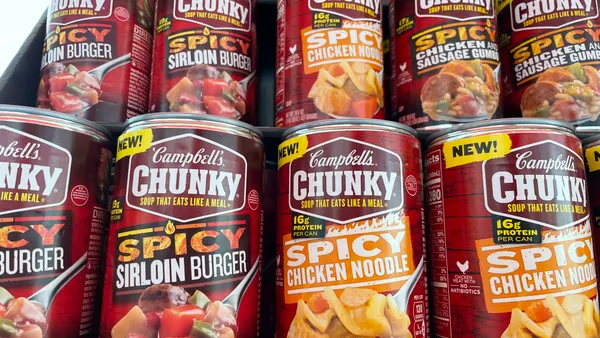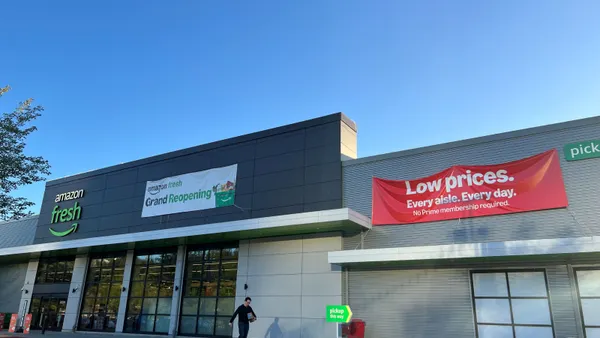Dive Brief:
- One of the trendy innovations in food isn't an ingredient — it's the standup pouch, the Washington Post reported. Brands such as Daisy, Chobani and Original Uncle Dougie's have already released their own versions.
- At least four companies, Glenroy, Aptar, Volpak and Viking Masek, create the Standcap Inverted Pouch, a flexible tube with a flip top.
- Reducing costs of transportation and storage, as well as increasing sustainability, were some of the driving factors behind the packaging innovation, according to the companies interviewed by the newspaper.
Dive Insight:
Packaging innovations have been coming faster during the last few years, from canned water to the Standcap Inverted Pouch. For some brands, it's paying off. Daisy, which was one of the first to use the Standcap pouch for its Daisy Squeeze sour cream line in 2015, reported a 69.7% increase in sales.
Packaging has become more important as brands look to differentiate their products from others on the shelf, save money and shift to meet demand for convenience and sustainability. A study conducted by L.E.K. Consulting earlier this year found that of 250 CPG brands surveyed, 75% expect to increase packaging spending during the next year and 90% say that packaging is important to their success.
The study also found that more than half of respondents are focusing on packaging that is easier to open. It noted that 85% of them reported at least one significant change to packaging material in the past two years, mostly for ease of recycling. These moves come as consumers continue to search for products that offer convenience, portability and portion control.
And it's not just lip service. These stats have translated into new product packaging. In June, Vita Coco introduced its aluminum canned water, while companies like JUST Water and Boxed Water is Better have come out with environmentally friendly paper-based cartons. Tetra Pak also launched cube packaging in March for dairy, liquid and juice, which allowed for easier shipping and made the product more affordable.
Flexible pouches meet similar needs. They're extremely durable, require less material than other bag packaging and are cheaper to make than glass jars or plastic containers. The Standcap pouch also uses 81% less water and produces 78% fewer greenhouse gas emissions than glass bottles, according to Glenroy. In contrast, glass is heavy to transport and dangerous to store, an executive with Sealed Air told the Washington Post. It is also expensive to recycle, with multiple counties in the U.S. no longer accepting glass as a recyclable material.
In addition, for CPG marketers, millennials are a target audience, according to a presentation by flexible packaging manufacturer Bemis. As children, millennials drank fruit juice from pouches. They also could be a hit for new convenience-hungry parents who remember growing up with them as kids and now are responsible for their own household shopping.













